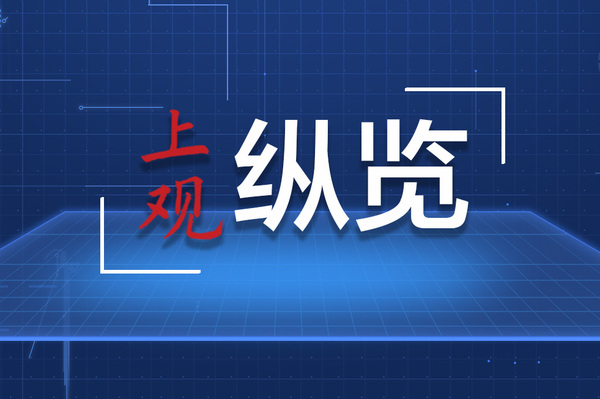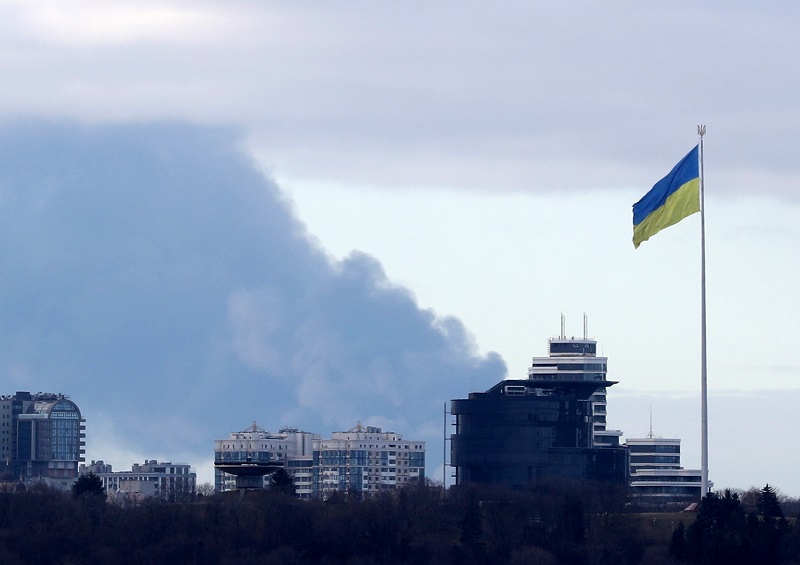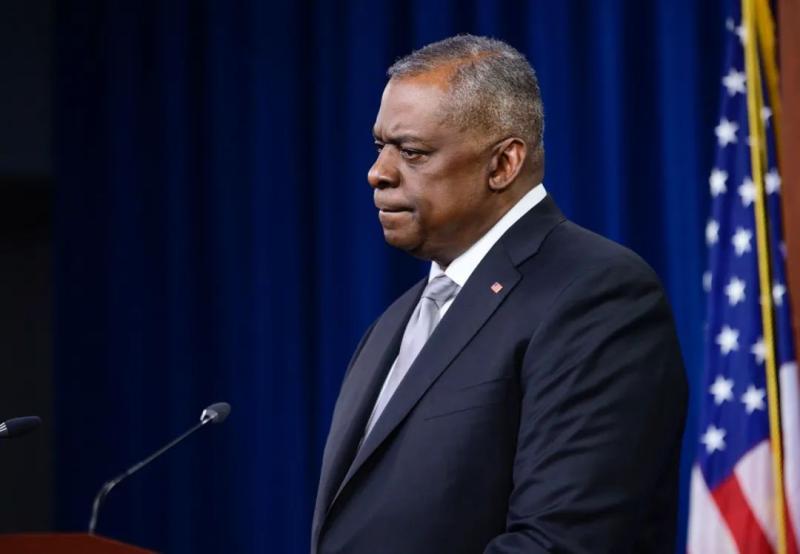The 9/11 coup left Chile with an irreparable historical scar, the pain of 50 years of coup and the crime of 200 years of hegemony
On September 11th, 50 years ago, there was also a major event that had a profound impact on the Americas region. On that day, Chilean military strongman Pinochet, with the support of the Central Intelligence Agency, bombed the presidential palace. Three year elected left-wing President Allende was forced to commit suicide. Afterwards, Pinochet banned left-wing political parties, dissolved Congress, and established a military government. Chile entered a period of 17 years of military dictatorship.
50 years have passed, and the historical scars left by the 9/11 coup on Chilean society have not yet healed. According to reports, Chilean President Boric launched a large-scale commemorative event this year to commemorate former President Allende and many others who died in the coup, while exposing the truth about US intervention in Chilean politics and promoting the 9/11 coup. In fact, in the 200 years since the proposal of "Monroeism" in 1823, the military intervention and economic plunder by the United States in the "backyard" of Latin America have never ceased, and the continuous struggle of Latin American countries against the "imperial power" of the United States has never ceased.
The enduring tragedy of the 1973 Chilean coup
On September 4, 1970, left-wing politician Salvador Allende won the Chilean presidential election through democratic elections. Due to Allende's implementation of socialist policies that benefited the lower class, attempting to address issues such as wealth inequality, education equity, healthcare, and land reform, it touched the sensitive Cold War nerves of the United States. After the election results were announced, the US government believed that Allende's accession to power would weaken the US's position and influence in the Western Hemisphere, endanger hegemonic interests, and immediately began plotting subversive actions to curb the potential domino effect of left-wing governance in Latin America.
On November 4, 1970, after Allende officially took office as president, then US President Nixon personally finalized the implementation plan for the "covert operation" against Chile, ultimately determining the Central Intelligence Agency as the main implementing body, and comprehensively adopting a "four in one" plan of public opinion propaganda, economic sanctions, political pressure, and military intervention. In terms of propaganda, the Central Intelligence Agency launched a stigmatized propaganda campaign against the relevant media in Europe and Latin America, exaggerating the internal contradictions of the People's Solidarity Front government, deliberately spreading and exaggerating the support provided by the Soviet Union and Cuba to Allende, aiming to confuse the public and cover up the subversive activities of the United States. In terms of economy, the United States has used Chile's high dependence on the United States in its economic and trade structure to pressure Chile, preventing financial institutions such as the World Bank and the Inter-American Development Bank from providing assistance and loans to Chile, and refusing requests for debt restructuring in Chile. In terms of politics, the United States provides secret funding support to opposition parties such as the Christian Democratic Party, the National Party, and the Democratic Radical Party in Chile, supporting opposition forces in confrontational political activities, and dismantling left-wing party alliances through secret funding unions. In terms of military affairs, the United States sent a military delegation to participate in the anniversary celebration of the Chilean Air Force, dispatched a large number of military advisors to the Chilean military, carried out rallies and counter operations, and strained the relationship between the military and Allende.
With the passage of time, the effectiveness of covert actions by the United States against the Allende government has become increasingly apparent. Under the instigation of the Central Intelligence Agency, on April 6, 1972, the Radical Left Party announced its withdrawal from the left-wing government alliance, shaking the foundation of the Allende government. With the support of the United States, the opposition party manipulated the elections of the Chilean Federation of University Students and the Union Union, and organized demonstrations against the Allende government. Meanwhile, since September 1972, the US Department of Defense and the Central Intelligence Agency have held several secret talks with Chilean right-wing General Pinochet to support his coup. Driven by covert actions in the United States, strikes and protests have emerged one after another, and the situation in Chile is in a state of continuous turmoil. On September 11, 1973, the Chilean military issued a statement demanding that Allende resign and occupy transportation hubs such as airports and ports. After Allende refused to resign, Pinochet commanded the Chilean army to surround and bomb the presidential palace, and came to power through a military coup. It can be seen that the United States was the mastermind behind the 9/11 coup in Chile.
Before the 1973 coup, Chile was one of the oldest constitutional democratic countries in the world. The 9/11 coup led to the dissolution of the Chilean parliament, the suspension of the constitution, and the loss of the rule of law, which had a profound impact on Chile and the entire Latin America. After the Pinochet military government came to power, it launched a brutal persecution campaign against those with different political views. Tens of thousands of opposition and dissidents were subjected to torture, execution, and disappearance, with 1469 victims still missing to this day. The 9/11 coup left a lasting scar on Chilean history, raising concerns about political stability and exacerbating political divisions on the left and right. The overthrow of democratically elected governments also sparked a wave of military takeover throughout Latin America. By the end of 1976, over 80% of Latin America's population was under the rule of right-wing military dictatorships.
"Monroeism" cannot conceal the essence of hegemony
Since the emergence of Monroeism, the United States has always regarded Latin America as its own "geopolitical backyard" and strategic barrier. The Monroe Doctrine was first proposed by the then President of the United States, Monroe, in 1823, claiming that the Americas were the Americas of the Americas, but in reality, it regarded Latin America as a "natural appendage" of the United States, forcing Latin American countries to act according to the will of the United States through means such as power interference, military subversion, and coercion. "Monroe Doctrine" proposed that for 200 years, the United States has been practicing "hegemony" under the name of "America", seizing natural resources in Latin America, damaging the economies of Latin American countries, interfering in their internal affairs, leading to economic recession, social unrest, and increased inequality in Latin American countries.
From a historical perspective, the rise of the United States is also a history of blood and tears and resistance in Latin American countries. In the mid-19th century, the expansionist ideology characterized by the theory of destiny spread in the United States, promoting the largest territorial expansion in its history. In 1845, the United States signed a merger treaty with Texas, officially annexing Texas, which originally belonged to Mexico. In 1848, the United States seized nearly half of Mexico's territory for just $15 million through a war with Mexico. Under the guidance of the theory of fate, the United States completed its continental expansion from the East Coast to the West Coast, while the Monroe Doctrine laid the groundwork for the United States to prevent the intervention of European powers such as Britain.
If you want to interfere, why bother without hesitation! In December 1904, US President Theodore Roosevelt stated in his State of the Union address that "long-term negligence or weakness has led to a comprehensive relaxation of the connections between civilized societies. In the Americas, it may ultimately be necessary for a civilized country to intervene, while in the Western Hemisphere, the United States had to exercise the power of international police in order to uphold the Monroe Doctrine." Theodore Roosevelt's "interpretation" of "Monroe Doctrine" became the basis for the United States to implement the "Big Stick Policy.". According to this self proclaimed theory, the United States can engage in armed intervention against any Latin American country without restraint, acting as the "military police" of the entire Western Hemisphere. At this time, Monroeism became the ideological cornerstone and diplomatic tool for the United States to implement imperialist policies. According to statistics, from 1898 to 1932, the United States intervened 34 times in 10 countries in Central America and the Caribbean. In addition to wielding a "big stick", the United States also exports capital to Latin American countries through "gold dollar diplomacy", gradually controlling the economic lifelines of Latin American countries.
A study by Harvard University showed that in less than a hundred years from 1898 to 1994, the US government successfully planned and implemented at least 41 coups in Latin America, equivalent to one every 28 months. Among these 41 coups, 17 were directly intervened by the United States through military actions, and the other 24 were indirectly intervened through covert actions. It is worth noting that these 41 coups did not include failed intervention by the United States, and the most notorious was the 1961 Cuban Bay of Pigs invasion. German historian Stefan Lynk believes in his monograph "Latin America and America: The Historical Controversy of the Colonial Period to the Present" that the relationship between the United States and Latin America from the colonial period to the beginning of the 21st century was essentially an "imperial structure", and the "imperialist" color of the United States' strategy towards Latin America was particularly prominent at specific historical stages.
Latin American countries take new steps towards unity and self-improvement
After entering the 21st century, under the catalysis of the first wave of left-wing governance in Latin America, the sense of unity and autonomy among Latin American countries has been increasingly strengthened. Due to dissatisfaction with the manipulation of the Organization of American States by the United States, Latin American countries established the Community of Latin American and Caribbean States in 2011, which excluded the United States. The establishment of this institution signifies that Latin American countries will no longer rely solely on the United States for their foreign policies, and that there will be a fundamental change in US Latin American relations.
As left-wing forces take power in multiple Latin American countries in 2022, they are gaining an absolute advantage in the entire region. Given the rise of the left-wing wave in Latin America, the United States' clumsy attempt to replace "Monroeism" with a new one has been severely thwarted. In June 2022, at the 9th Summit of the Americas hosted by the United States, the United States attempted to reshape its leadership position in the Americas by leveraging its home advantage. However, the summit was publicly boycotted by leaders from multiple Latin American countries due to the United States refusing to invite leaders from Cuba, Venezuela, and Nicaragua to attend. The Biden administration, in an awkward situation, was forced to realize that the "direction" of the US backyard had changed.
Latin American countries are constantly taking new steps on the path of seeking unity and self-improvement. In January of this year, the seventh summit of the Community of Latin American and Caribbean States (CELAC) adopted the Buenos Aires Declaration, which stated that CELAC member states committed to strengthening unity and firmly advancing the integration process while respecting "political, economic, social, and cultural diversity", and clearly expressed opposition to any "unilateral actions" that affect CELAC countries. In May of this year, a meeting of South American leaders was held in Brazil to exchange views on how to strengthen regional cooperation, promote South American integration, and reach the Brasilia Consensus. It was pointed out that South American leaders regard "the value of the rule of law, institutional stability, sovereignty, and non-interference in internal affairs" as the basic principles of regional progress, demonstrating a strong will for independence and autonomy. Brazilian President Lula not only proposed the creation of a common currency and breaking away from dependence on the US dollar system at the meeting, but also stated that it was the fault of the United States to impose sanctions on Venezuela. "The United States has imposed an extremely exaggerated blockade, which is worse than war.".
Nowadays, under the banner of "Bolivarianism", historic changes and a wave of anti American movements are taking place in Latin America, making it impossible for the United States to pursue its hegemonic policies in the Western Hemisphere at will.




